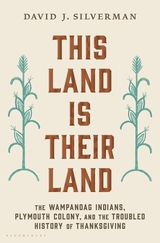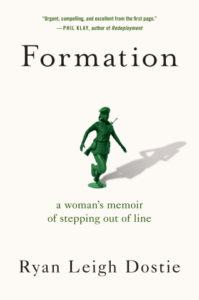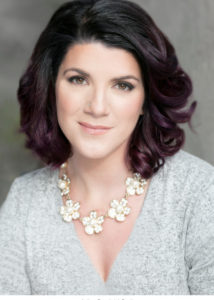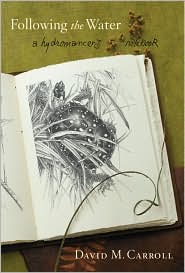David J. Silverman: This Land is Their Land: The Wampanoag Indians, Plymouth Colony, and the Troubled History of Thanksgiving
March 11, 2020 by David
Filed under Non-Fiction, WritersCast
 This Land is Their Land: The Wampanoag Indians, Plymouth Colony, and the Troubled History of Thanksgiving – David J. Silverman – Bloomsbury – Hardcover – 9781632869241- 528 pages – $32.00 – November 5, 2019 – ebook versions available at lower prices
This Land is Their Land: The Wampanoag Indians, Plymouth Colony, and the Troubled History of Thanksgiving – David J. Silverman – Bloomsbury – Hardcover – 9781632869241- 528 pages – $32.00 – November 5, 2019 – ebook versions available at lower prices
There have been a number of books I have read recently (and another I am reading now) that both challenge and retell the founding myths that power America’s beliefs about itself. In particular, I find books like David Silverman’s extraordinary work of historical storytelling, grounded in deep research and a new perspective so powerful, because they make us question and rethink stories and beliefs about ourselves we have come to take for granted.
Every culture tells its creation myths, establishing core values through historical story telling, that help shape the shared belief systems of the people who make up that culture. American creation myths tell stories that train our citizens to believe in the essential rightness of European settlement of the “virgin” territory now known as the United States to overlook not only the invasion and displacement of indigenous peoples, but to justify the way those peoples have been cast and treated subsequently by the dominant culture.
One of the most powerful of all historical American myths is that of the Pilgrims’ arrival in what is now called Plymouth, Massachusetts. The people who then lived along the eastern coast of America were primarily the loosely confederated Wampanoags, a tribal group that controlled most of what is now coastal Massachusetts and Rhode Island.
That creation story suggests that the Pilgrims were the first white people the Wampanoags met, and greeted them with open arms and friendship. In fact, by the time the Pilgrims landed on their shores, the Wampanoags had over 100 years’ experience with Europeans, including fishermen and explorers, and they had just gone through a horrendous five year period wracked by European diseases against which they had no anti-bodies, and their population and culture had been devastated. The Wampanoags, led by their sachem, Ousamequin (Massasoit), greeted this new group of visitors with a deep knowledge and understanding of who these newcomers were and what they might want. And they also had an extremely clear idea of how the Europeans could be positioned to help the Wampanoags in their ongoing territorial struggles with neighboring Massachusetts peoples, and other more distant tribes who frequently attacked them. Europeans came with guns and tools they would reasonably expect to trade with indigenous people in return for food and furs.
In March 1621, Ousamequin and the Plymouth colony’s governor, John Carver, agreed on their friendship and made an active commitment to mutual defense. That fall, the English, with the help of the Wampanoag, made their first successful harvest in their “New World.” When Ousamequin and some of his tribe visited Plymouth, they also helped create the “First Thanksgiving.” And the treaty made between the Wampanoags and the English remained functional, despite much friction and miscommunication between the two cultures, for more than fifty years, until King Philip’s War in 1675, when peace ended, and Wampanoags lost most of their power and land.
The relationship between Wampanoags and Europeans, then Americans, did not end, however, in the seventeenth century. The Wampanoags survived and have retained their culture against tremendous odds. In this book, historian David J. Silverman illuminates this long, fraught, and difficult relationship, even to modern times, from the perspective of the indigenous people, providing us with a powerfully different view of our history than we typically experience.
The story of the Wampanoags, who were among the earliest tribes in conflict with the European invaders, is one that was repeated many times across hundreds of years, with other tribes elsewhere across the North American continent. What the Wampanoags experienced through the last several centuries is a story that can help us all understand a truer picture of our country’s history, one we should all aim to better comprehend. And with a different perspective about our past, perhaps we will be able to create a better present for us all.
“David Silverman has crafted a gripping Native-centered narrative of the English invasion of New England. Finally, there is a book that vividly contextualizes the fabled first Thanksgiving, placing Native diplomacy and actions at the very center of the story, along with the warfare, dispossession, and struggle for sovereignty that was very much part of the longer aftermath of first contact. It is a story that continues into the present and a must read for every American.” – Linford Fisher, author of THE INDIAN GREAT AWAKENING
David J. Silverman is a professor at George Washington University, where he specializes in Native American, Colonial American, and American racial history. He is the author of Thundersticks, Red Brethren, Ninigret, and Faith and Boundaries. His essays have won major awards from the Omohundro Institute of Early American History and Culture and the New York Academy of History.
It was my great pleasure to speak with David Silverman about This Land is Their Land.
You can buy the book from RJ Julia Booksellers in Madison, Connecticut – they will deliver! Click here to purchase.
Podcast: Play in new window | Download
Ryan Leigh Dostie: Formation: A Woman’s Memoir of Stepping Out of Line
June 7, 2019 by David
Filed under Non-Fiction, WritersCast
 Formation: A Woman’s Memoir of Stepping Out of Line – Ryan Leigh Dostie – Grand Central Publishing – Hardcover – 978-1538731536 – 368 pages – $28.00 – ebook versions available at lower prices – June 4, 2019
Formation: A Woman’s Memoir of Stepping Out of Line – Ryan Leigh Dostie – Grand Central Publishing – Hardcover – 978-1538731536 – 368 pages – $28.00 – ebook versions available at lower prices – June 4, 2019
Ryan Leigh Dostie’s story is sometimes a painful one to read, but it is too important to not read, and this is a book I can and must recommend to all readers. Ryan comes from an unusual background. She was raised in a women-run Christian community for most of her early life. Though she wanted to be a writer, she joined the Army after high school, trained to be a linguist, and was on the more or less normal course of a teenaged woman making her way in a male dominated military force, when she was raped by another soldier in her unit.
Her memoir recounts what happened to her, what she experienced subsequently, and how she lived through and was affected by, not only her personal trauma, but the experiences she shared with other soldiers in an active deployment in Iraq, where she was part of the first wave of the American invasion in 2003. It’s a sometimes harrowing story, but also inspiring, raw and powerful, as Ryan does not flinch from showing everything she experienced and felt through a long period during and after her most powerful personal experiences in the Army.
This book does not overtly take a particular political position, despite the pain and suffering the author endured throughout her time during and after her service. But it is impossible to read this book and not be forced to think about so many of the issues around male-female relationships, power and how it is applied, the patriarchal structure that dominates our culture, and the work needed to change the way men and women interact on a daily basis.
This is the story of one woman’s journey, as such, it is thoroughly compelling, but Formation cannot fail to affect anyone who reads it, and forces us to confront our own ingrained conceptual frameworks. Not only is the memoir a story of sexual assault in the narrow sense, Ryan’s story provides a representation of how societal structures affect us all, how the individual is made to be responsible for the failures of our systems, and hopefully will help spur us all to think how we might engage in the struggle to change those structures and systems sooner than later.
I’d also add that Ryan is, has become, a very good writer. It emerges in her story that she was an aspiring novelist when she was young, and after soldiering, she went on to complete a college degree, as well as an MFA. The writing in this book is evidence of how far she has come in learning her craft.
Her “official” bio: Ryan Leigh Dostie is a novelist turned soldier turned novelist. As an Army Persian-Farsi/Dari Linguist in Military Intelligence, she was deployed to Iraq during Operation Iraqi Freedom I and II (2003-2004). She holds an MFA in fiction writing and a bachelor’s degree in History from Southern Connecticut State University. FORMATION is her first book.
It was my pleasure and honor to interview Ryan Leigh Dostie in New Haven, Connecticut, where she lives today. Her website is well worth a visit – www.ryanleighdostie.com
“Though I knew it would be urgent, compelling, and excellent from the first page, Formation was a much more expansive book than I even could have suspected: a riveting, enraging memoir from an author of remarkable toughness and emotional range. This is an unflinching and honest account of war, of homecoming, and of what happens when a woman reports an assault and the institutions around her try to smother the truth.” – Phil Klay, author of Redeployment
Podcast: Play in new window | Download
David M. Carroll: Following the Water
February 7, 2010 by David
Filed under Non-Fiction
 978-0547069647 – Hardcover – Harcourt Houghton Mifflin – $24.00
978-0547069647 – Hardcover – Harcourt Houghton Mifflin – $24.00
David M. Carroll has been “following the water” for almost his entire life. He grew up in Connecticut, then lived in Massachusetts, and moved to New Hampshire to find places less disturbed by humans, where he could study turtles and their woodland, waterine habitats. Which he has done now for many years. Following the Water is subtitled “A Hydromancer’s Notebook; a hydromancer would be one who divines by the motions or appearance of water, which is certainly descriptive of what David Carroll does in his life and in this book, a poetic journal of a year of divining the natural world by close observation of it.
Most of us spend far too little time in nature, and many of those who do “use” the natural world for entertainment or work in a way that would be difficult to distinguish from how they treat the non-natural world. What is so beautiful about Carroll’s work and his writing about it, is the depth of his observation, and his literal being in place. Reading his elegiac descriptions of the watery environments of New England transported me to an almost metaphysical trance-like state of mind where I could imagine myself inhabiting the outside space in which he spends so much of his time.
Of course there is a terrible sadness in this book, as Carroll experiences the changes in the places he has known so well and so long, always brought on by the effects of constantly encroaching human development. He knows the turtles and their environments will soon be threatened and knows there is almost nothing that can be done to protect them. This is a feeling that many who work in and strive to protect our remaining wild places share, an ever present sense of desperation, as we near the tipping point of urban and suburbanization.
Carroll writes beautifully, and his drawings are exquisite. Reading this book made me wonder how I had managed to miss reading his earlier books, and has spurred me to go out and get them all. Here’s a perfect example of the quiet power of his prose:
“As daylight diminishes, the peep-frog chorus intensifies in the backwaters of a fen a quarter mile away. With raucous clamor and a rushing wind of wings beats a flurry of grackles lifts off from the topmost canopy of the red maple swamp. In the quieting that follows, I hear again the drift of evensong from their red-winged cousins on the far side of the wetland mosaic. The season, like the water glimmering all around, extends before me.”
David Carroll is as enjoyable to hear talking as his writing is to read. Interviewing him was a pleasure, tinged with a shared sense of dismay about what has happened to our shared New England natural environment. Both this book and this talk are among my favorites, and I hope listeners will agree.
Podcast: Play in new window | Download
